 You may recall your school years when everyone would study the same subject in mixed-ability classes. Unfortunately, everybody learns in different ways and one particular method of learning will not suit every student. Our teachers realise these differences and alter their teaching accordingly. They aim to break away from the traditional classroom experience and to make your lessons as personalised, enjoyable and comfortable as possible.
You may recall your school years when everyone would study the same subject in mixed-ability classes. Unfortunately, everybody learns in different ways and one particular method of learning will not suit every student. Our teachers realise these differences and alter their teaching accordingly. They aim to break away from the traditional classroom experience and to make your lessons as personalised, enjoyable and comfortable as possible.
 The popular assumption about learning a new skill is that when you are younger it comes very naturally. Although age should not be a barrier, as we grow older our brain takes longer to absorb and retain new information. However, neuroscientists have shown that it is extremely healthy and beneficial to learn a language at any point in your life. The most important thing is to work out what the best study methods are for you as an individual.
The popular assumption about learning a new skill is that when you are younger it comes very naturally. Although age should not be a barrier, as we grow older our brain takes longer to absorb and retain new information. However, neuroscientists have shown that it is extremely healthy and beneficial to learn a language at any point in your life. The most important thing is to work out what the best study methods are for you as an individual.
 This statement is so meaningless! We can all make time for the things we like doing or want to do. And being committed and motivated to learn a language is your choice after all. Our courses are flexible and our lessons can be booked according to your daily routine.
This statement is so meaningless! We can all make time for the things we like doing or want to do. And being committed and motivated to learn a language is your choice after all. Our courses are flexible and our lessons can be booked according to your daily routine.
 Indeed, English is widely spoken in the world but it is not the only international language. Over 400 million people speak Spanish, not just in Europe but also in Latin America. Spanish is considered to be one of the easiest languages to learn for English speakers. It is also a language spoken widely on the internet and in business.
Indeed, English is widely spoken in the world but it is not the only international language. Over 400 million people speak Spanish, not just in Europe but also in Latin America. Spanish is considered to be one of the easiest languages to learn for English speakers. It is also a language spoken widely on the internet and in business.
French is also an international language, being an official language of organisations such as UNESCO, the United Nations, NATO and more. It is spoken in many European countries (France, Belgium, Switzerland), in Canada and in many North-African countries.
Chinese is also an official language of the United Nations. It is spoken by over 1 billion people i.e. one-fifth of the world’s total population.

Language learning apps will not enable you to speak your target language. Their true value is to develop your knowledge of vocabulary and grammar. If you want to learn how to drive, you need to have an instructor. The same applies to learning a foreign language. Ultimately, when you travel abroad on holiday or for business purposes you want to make yourself understood and most importantly understand what the locals say to you.

Think about the money that you may spend on other non-essential activities to entertain yourself. It will certainly cost you more than a language learning app but you will progress far more quickly. We offer very small groups so you can spread the cost but still learn efficiently and effectively.
 Regrettably, this is wrong. The more students there are in the class, the less you will be able to speak. In private classes, you will have the opportunity to converse in the language that you are learning with your teacher who is a native speaker. The sounds and phrases you will hear are authentic!
Regrettably, this is wrong. The more students there are in the class, the less you will be able to speak. In private classes, you will have the opportunity to converse in the language that you are learning with your teacher who is a native speaker. The sounds and phrases you will hear are authentic!

Your school days may have put you off speaking a foreign language in front of your classmates. As an adult now you have made the decision to learn a language and attend a course. If you feel embarrassed about making mistakes in a group, you can have one-to-one tuition! The most important thing to remember is that practice makes perfect!

Revision is an important part of the learning process so homework should not be seen as a negative process of language learning. On the contrary, it gives you the opportunity to practise what you have covered in class. Homework should help you learn.
 It is true that we all began to speak our native language without studying grammar by the time we were about two or three years old. As we grow older, unfortunately, this does not quite apply to learning another language as a total beginner. Grammar is a set of structural rules composed of words. If you want to communicate in a foreign language effectively, you will need to memorise basic words. You may not necessarily want to learn the grammatical terms such as verbs, prepositions and pronouns, but you will need to memorise these words, to hear and reproduce the different sounds they make if you want to communicate effectively in a foreign language. Basic knowledge of grammar will help you develop your vocabulary.
It is true that we all began to speak our native language without studying grammar by the time we were about two or three years old. As we grow older, unfortunately, this does not quite apply to learning another language as a total beginner. Grammar is a set of structural rules composed of words. If you want to communicate in a foreign language effectively, you will need to memorise basic words. You may not necessarily want to learn the grammatical terms such as verbs, prepositions and pronouns, but you will need to memorise these words, to hear and reproduce the different sounds they make if you want to communicate effectively in a foreign language. Basic knowledge of grammar will help you develop your vocabulary.



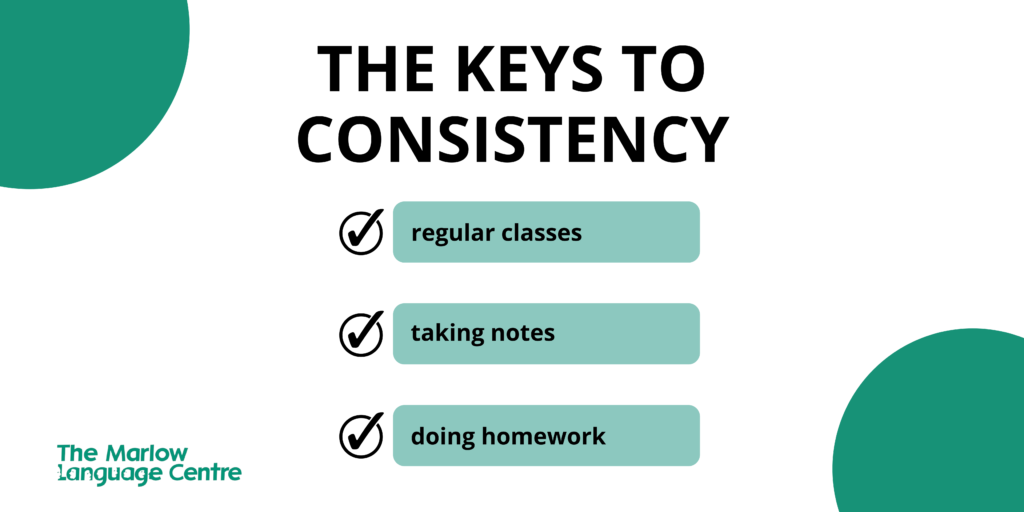
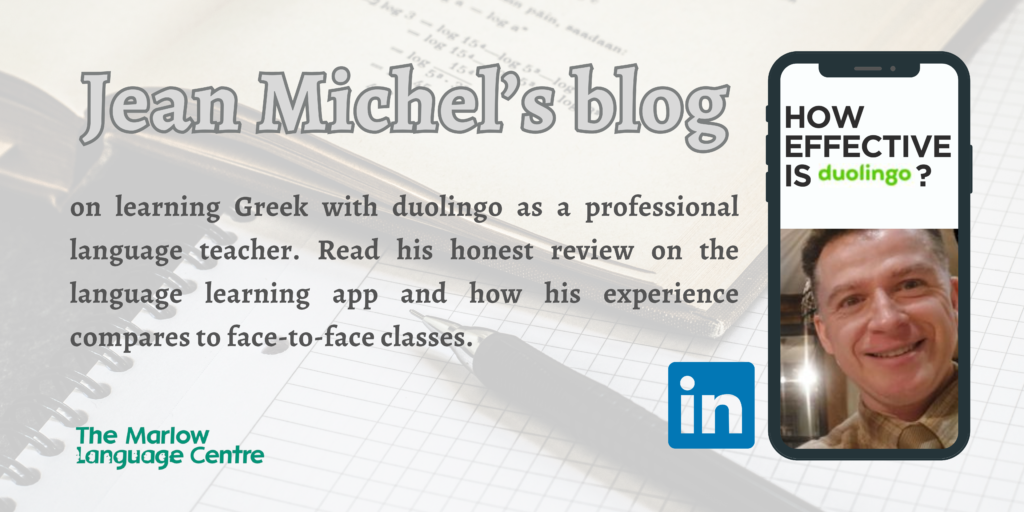 Learning a new language can be challenging and time-consuming, but the experience can also be rewarding!
Learning a new language can be challenging and time-consuming, but the experience can also be rewarding! As one of the most visited countries in the world, France is a great choice of place to visit (and to retire in). It’s known for its amazing wines, food, and great sense of fashion but there is so much more to explore and learn about France. Whether you’re planning your next trip to France or buying a property, there are many things that you must bear in mind when travelling to the country of love or wine, depending on who you’re asking. We asked one of our
As one of the most visited countries in the world, France is a great choice of place to visit (and to retire in). It’s known for its amazing wines, food, and great sense of fashion but there is so much more to explore and learn about France. Whether you’re planning your next trip to France or buying a property, there are many things that you must bear in mind when travelling to the country of love or wine, depending on who you’re asking. We asked one of our 
 How to improve your language learning?
How to improve your language learning?
 You may recall your school years when everyone would study the same subject in mixed-ability classes. Unfortunately, everybody learns in different ways and one particular method of learning will not suit every student. Our teachers realise these differences and alter their teaching accordingly. They aim to break away from the traditional classroom experience and to make your lessons as personalised, enjoyable and comfortable as possible.
You may recall your school years when everyone would study the same subject in mixed-ability classes. Unfortunately, everybody learns in different ways and one particular method of learning will not suit every student. Our teachers realise these differences and alter their teaching accordingly. They aim to break away from the traditional classroom experience and to make your lessons as personalised, enjoyable and comfortable as possible. The popular assumption about learning a new skill is that when you are younger it comes very naturally. Although age should not be a barrier, as we grow older our brain takes longer to absorb and retain new information. However, neuroscientists have shown that it is extremely healthy and beneficial to learn a language at any point in your life. The most important thing is to work out what the best study methods are for you as an individual.
The popular assumption about learning a new skill is that when you are younger it comes very naturally. Although age should not be a barrier, as we grow older our brain takes longer to absorb and retain new information. However, neuroscientists have shown that it is extremely healthy and beneficial to learn a language at any point in your life. The most important thing is to work out what the best study methods are for you as an individual. This statement is so meaningless! We can all make time for the things we like doing or want to do. And being committed and motivated to learn a language is your choice after all. Our courses are flexible and our lessons can be booked according to your daily routine.
This statement is so meaningless! We can all make time for the things we like doing or want to do. And being committed and motivated to learn a language is your choice after all. Our courses are flexible and our lessons can be booked according to your daily routine. Indeed, English is widely spoken in the world but it is not the only international language. Over 400 million people speak Spanish, not just in Europe but also in Latin America. Spanish is considered to be one of the easiest languages to learn for English speakers. It is also a language spoken widely on the internet and in business.
Indeed, English is widely spoken in the world but it is not the only international language. Over 400 million people speak Spanish, not just in Europe but also in Latin America. Spanish is considered to be one of the easiest languages to learn for English speakers. It is also a language spoken widely on the internet and in business.

 Regrettably, this is wrong. The more students there are in the class, the less you will be able to speak. In private classes, you will have the opportunity to converse in the language that you are learning with your teacher who is a native speaker. The sounds and phrases you will hear are authentic!
Regrettably, this is wrong. The more students there are in the class, the less you will be able to speak. In private classes, you will have the opportunity to converse in the language that you are learning with your teacher who is a native speaker. The sounds and phrases you will hear are authentic!

 It is true that we all began to speak our native language without studying grammar by the time we were about two or three years old. As we grow older, unfortunately, this does not quite apply to learning another language as a total beginner. Grammar is a set of structural rules composed of words. If you want to communicate in a foreign language effectively, you will need to memorise basic words. You may not necessarily want to learn the grammatical terms such as verbs, prepositions and pronouns, but you will need to memorise these words, to hear and reproduce the different sounds they make if you want to communicate effectively in a foreign language. Basic knowledge of grammar will help you develop your vocabulary.
It is true that we all began to speak our native language without studying grammar by the time we were about two or three years old. As we grow older, unfortunately, this does not quite apply to learning another language as a total beginner. Grammar is a set of structural rules composed of words. If you want to communicate in a foreign language effectively, you will need to memorise basic words. You may not necessarily want to learn the grammatical terms such as verbs, prepositions and pronouns, but you will need to memorise these words, to hear and reproduce the different sounds they make if you want to communicate effectively in a foreign language. Basic knowledge of grammar will help you develop your vocabulary.



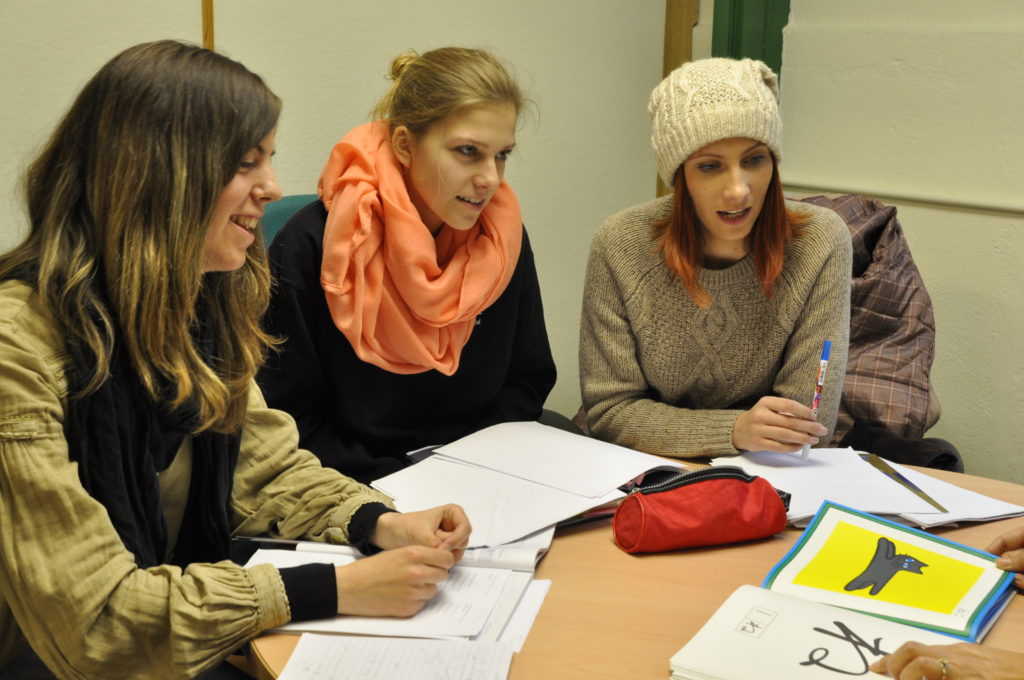
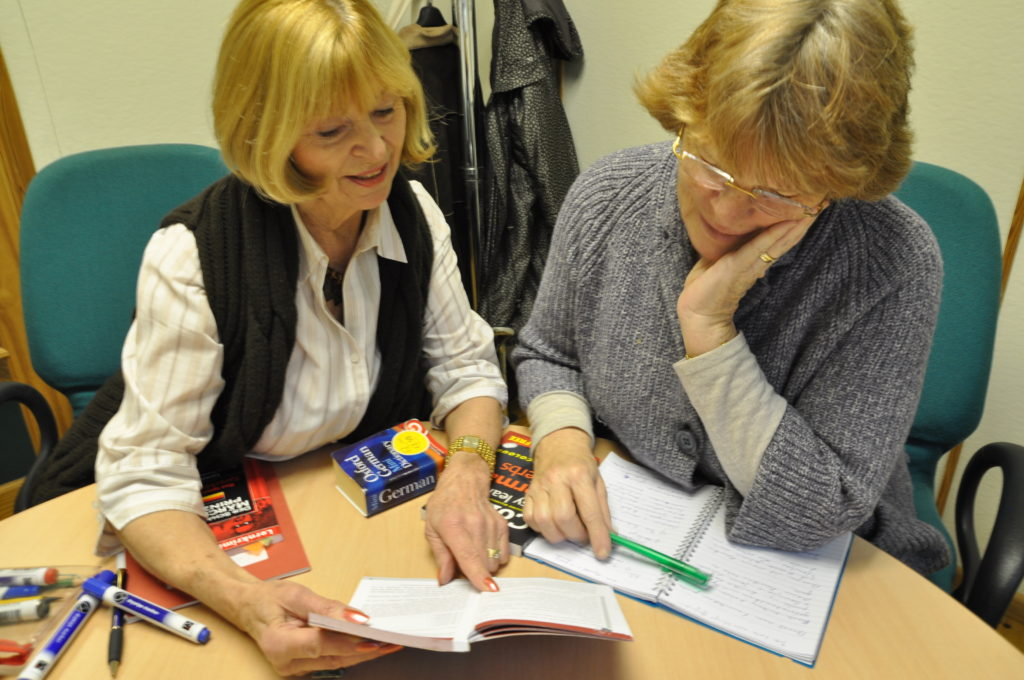


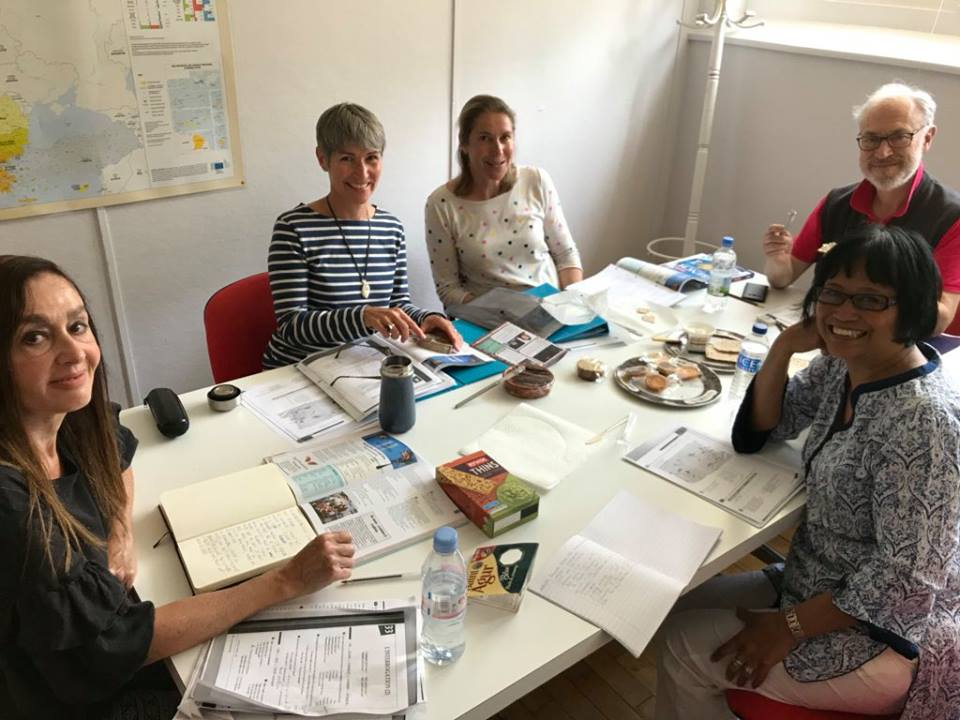

 From what we’ve learned in 28 years of teaching, these are the top ten reasons to love learning a language:
From what we’ve learned in 28 years of teaching, these are the top ten reasons to love learning a language:
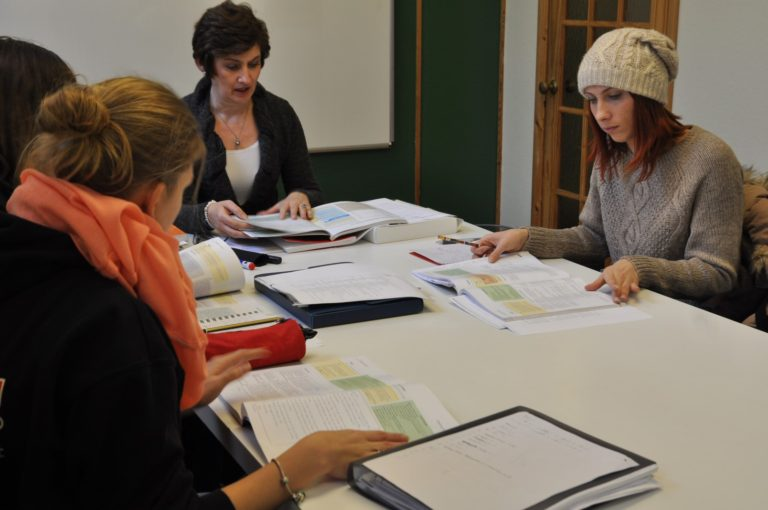
 employees find themselves terrified of tackling such a challenge.
employees find themselves terrified of tackling such a challenge. Chatting to locals can be one of the most rewarding and enriching parts of travelling, giving you the chance to learn about a new culture and lifestyle and really get a feel for a different country. It can provide a wonderful mixture of practical advice and cultural insight and an experience you’ll remember for years to come.
Chatting to locals can be one of the most rewarding and enriching parts of travelling, giving you the chance to learn about a new culture and lifestyle and really get a feel for a different country. It can provide a wonderful mixture of practical advice and cultural insight and an experience you’ll remember for years to come. Hands up if you started the year with a flurry of new year’s resolutions and career goals.
Hands up if you started the year with a flurry of new year’s resolutions and career goals.
 Past studies suggest that our young people are lagging far behind their European peers, with many unable to understand more than basic words or phrases and new research confirms that two-thirds of adults (67%) surveyed said that the UK does not encourage enough young people to learn other languages and 63% said schools should dedicate more time to foreign languages.
Past studies suggest that our young people are lagging far behind their European peers, with many unable to understand more than basic words or phrases and new research confirms that two-thirds of adults (67%) surveyed said that the UK does not encourage enough young people to learn other languages and 63% said schools should dedicate more time to foreign languages.